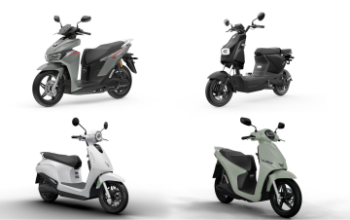SINGAPORE – 7 December 2021 – SAP SE (NYSE: SAP) today announced that the United Nations Office for the Coordination of Humanitarian Affairs (OCHA) selected SAP’s 4W-Wizard tool that aims at enabling customers to realise time savings and to focus on delivering humanitarian aid during disasters.
OCHA’s adoption of the SAP 4W Wizard tool in humanitarian missions across the Asia Pacific region is intended to help people in Nepal, Papua New Guinea, Vietnam, and Cambodia, as well as recent crises in the Philippines, Turkey, and South Sudan by bringing together conversational AI, data analytics, and automation.
“Every minute counts when it comes to providing fast and effective humanitarian relief. In one case, the 4W-Wizard tool from SAP helped us to reduce the time taken to process data, transforming what used to take a massive amount of effort and resources into something easy and quick to do. That makes a huge difference in our work – and by extension, to the people we support,” said John Marinos, former Regional Information Management Officer for Asia Pacific-Japan at OCHA.
Tried and tested technology to save time – and lives
“About 235 million people globally have needed humanitarian assistance and protection in 2021. But COVID-19 and the ongoing travel restrictions have forced us to scale back the number of international aid workers we can deploy, severely impacting the support we could provide to vulnerable populations. It means we have to find new ways to save time and resources, so can ensure every second and every dollar is put to the right place,” added Marinos.
In Nepal, for example, the OCHA team utilized the SAP 4W-Wizard in its launch of a Humanitarian Response Plan for COVID-19 response, requesting US$83 million worth of live-saving assistance to more than 9 million people. The tool was aimed at minimising time-consuming manual tasks and allowing workers to focus on implementing a proactive, anticipatory approach to prepare for future disasters like monsoons, securing emergency funds and mitigating suffering for the most vulnerable.
OCHA also used the SAP 4W-Wizard tool to embark on its objective of achieving seamless coordination between non-governmental organizations (NGOs) to empower local organisations while collecting more information than ever before. In Nepal, the inclusion of more local NGOs and community-based organisations proved critical in driving trust in and donations for OCHA’s humanitarian efforts.
Innovative technology to make every second count in a disaster
The 4W-Wizard, which runs on the SAP Business Technology Platform and uses machine learning and natural language processing technologies, uses information on the aid rendered by NGOs to help improve visibility, collaboration, and planning on a common platform.
“We’ve been aiming to prototype new ways that could help humanitarian response at SAP for some years. We designed the SAP 4W-Wizard as an innovative way that helps organisations like the UN to achieve addressing the big challenges we face today, be it climate change, natural disasters, or COVID-19. Rapid access to useable data is crucial for aid personnel to respond accurately to crises and disaster situations, and to be prepared for what might happen in the future,” said Carsten Boekholt, Industry and Customer Innovation Advisor, SAP APJ.
“The future of humanitarian response will be smarter – tapping on technology to help connect the dots, enable coordination, and mitigate waste and inefficiencies that result from manual reporting,” added Mr. Boekholt.
The SAP 4W-Wizard tool was initiated by Relief.iO, a fully funded, internal SAP start-up committed to building a supply chain collaboration platform for disaster relief. Relief.iO emerged out of South-East Asia under SAP’s One Billion Lives program, a crowd-sourced program that employs SAP technology with the intention of delivering sustainable, commercially viable social impact. Ongoing projects include tackling cancer drug effectiveness in India and aiming to improve disaster prevention and preparedness in Japan.
About SAP
SAP’s strategy is to help every business run as an intelligent enterprise. As a market leader in enterprise application software, we help companies of all sizes and in all industries run at their best: SAP customers generate 87% of total global commerce. Our machine learning, Internet of Things (IoT), and advanced analytics technologies help turn customers’ businesses into intelligent enterprises. SAP helps give people and organizations deep business insight and fosters collaboration that helps them stay ahead of their competition. We simplify technology for companies so they can consume our software the way they want – without disruption. Our end-to-end suite of applications and services enables business and public customers across 25 industries globally to operate profitably, adapt continuously, and make a difference. With a global network of customers, partners, employees, and thought leaders, SAP helps the world run better and improve people’s lives.
Any statements contained in this document that are not historical facts are forward-looking statements as defined in the U.S. Private Securities Litigation Reform Act of 1995. Words such as “anticipate,” “believe,” “estimate,” “expect,” “forecast,” “intend,” “may,” “plan,” “project,” “predict,” “should” and “will” and similar expressions as they relate to SAP are intended to identify such forward-looking statements. SAP undertakes no obligation to publicly update or revise any forward-looking statements. All forward-looking statements are subject to various risks and uncertainties that could cause actual results to differ materially from expectations. The factors that could affect SAP’s future financial results are discussed more fully in SAP’s filings with the U.S. Securities and Exchange Commission (“SEC”), including SAP’s most recent Annual Report on Form 20-F filed with the SEC. Readers are cautioned not to place undue reliance on these forward-looking statements, which speak only as of their dates.


















